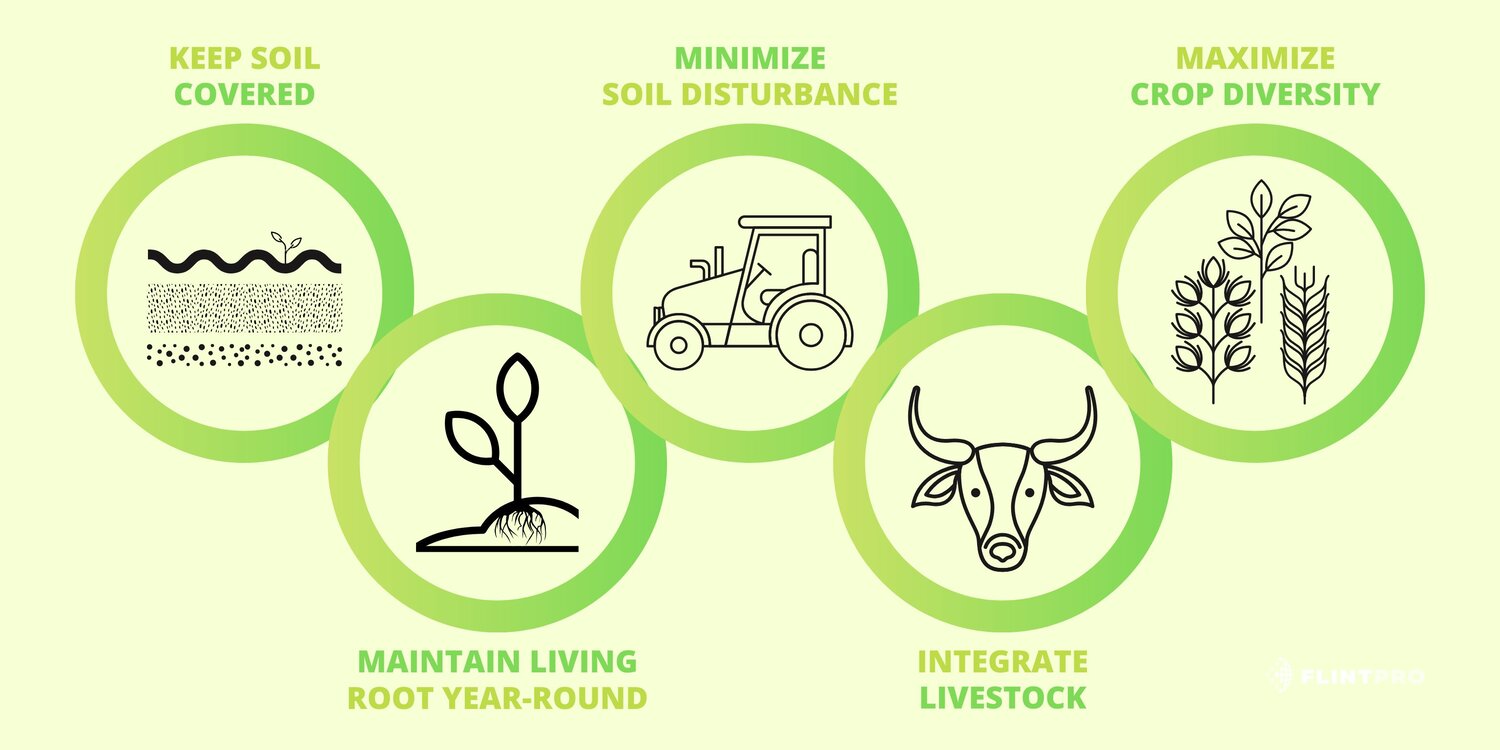In urban areas, consumption of food per person tends to be greater due to people earning higher average incomes than rural citizens. Yet, the high proportion of the food that flows into cities is processed or consumed in a way that creates large wastage in the form of discarded food, by-products or sewage.
Local sourcing can play a significant role in supporting the development of a regenerative agricultural system. It allows cities to increase the resilience of their food supply by relying on a more diverse range of supplies (which includes local and global).
By reconnecting city dwellers as close to the growers as possible, it is more likely that people will demand food grown using regenerative practices that benefit the local environment and their own health.
Farmers should be encouraged as entrepreneurs and small business owners, they struggle to find the time to build and operate local businesses, connecting with customers.
Regenerative food production means employing techniques that replenish and improve the overall health of the ecosystem.
It supports natural systems, rebuilding and enhancing ecosystems, while preserving environment quality.
Examples of such practices include shifting from synthetic to organic fertilisers, employing crop rotation, and using greater crop variation to promote biodiversity. Regenerative practices support the development of healthy soils, which can result in foods with improved taste and micronutrient content.




Leave a reply